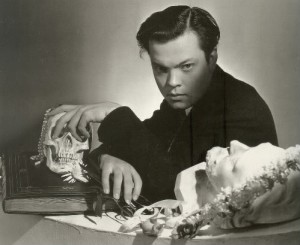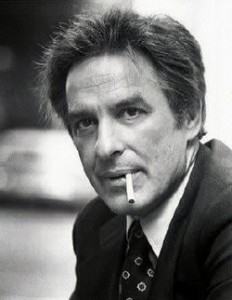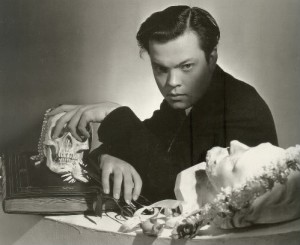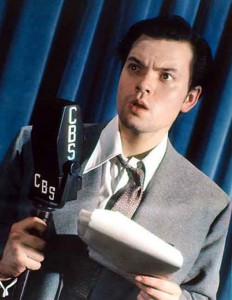From the October 21, 2005 Chicago Reader. — J.R.


Good Night, and Good Luck
** (Worth seeing)
Directed by George Clooney
Written by Clooney and Grant Heslov
With David Straithairn, Clooney, Robert Downey Jr., Patricia Clarkson, Frank Langella, Ray Wise, Heslov, Jeff Daniels, and Dianne Reeves
Capote
*** (A must see)
Directed by Bennett Miller
Written by Dan Futterman
With Philip Seymour Hoffman, Catherine Keener, Clifton Collins Jr., Chris Cooper, Bruce Greenwood, Bob Balaban, Mark Pellegrino, and Amy Ryan
Good Night, and Good Luck and Capote view journalism as an intricate mix of principles, bravado, and negotiation. Working in a minefield, their star journalists are victims of their vocations. Good Night, and Good Luck, set in the early 50s, celebrates Edward R. Murrow’s bravery, eloquence, and sense of justice in challenging Joseph McCarthy at the height of his power — a kind of heroism that evokes John Wayne’s in a western like Rio Bravo (a movie I cherish, though its view of good and evil is similarly unshaded). Good Night, and Good Luck — named for Murrow’s sign-off line — also explores how internal politics at CBS were shaped by the network’s relations with its sponsors. The victimization of Murrow can be seen in his early death from lung cancer — his chain smoking, like James Agee’s and Albert Camus’, was somehow connected in the public mind with his moral seriousness — and in the way his weekly show, See It Now, was bumped to a Sunday-afternoon slot after he challenged McCarthy. Read more
From the Chicago Reader (October 13, 2006). — J.R.

Infamous **
Directed and written by Douglas McGrath
With Toby Jones, Daniel Craig, Sandra Bullock, Jeff Daniels, Peter Bogdanovich, Sigourney Weaver, and Hope Davis

Two recent features about Truman Capote, coincidentally made around the same time, concentrate on Capote’s work on his true-crime best seller In Cold Blood, about the slaying of a family in rural Kansas. Both suggest that Capote’s life and career were destroyed by the emotional strain of researching and writing that book, yet they’re fascinatingly different in what they try to do and in how they depict their subject. Capote — which professes to be based on Gerald Clarke’s standard biography of the same title — came out a year ago and won its lead actor, Philip Seymour Hoffman, an Oscar. Infamous — which claims to be based on George Plimpton’s Truman Capote, a collection of gossipy sound-bites assembled in the same manner as his “oral histories” about Edie Sedgwick and Robert F. Kennedy — was released a year after it was completed to avoid comparisons with Capote. Now that it’s out, comparisons are in order — and not all of them are to Capote‘s advantage. Read more
Originally written as the tenth chapter of my book Movie Wars: How Hollywood and the Media Limit What Films We Can See (2000), this is also reprinted in my 2007 collection Discovering Orson Welles. Because of the length of this essay, I’m posting it in two installments – J.R.


3. The taboo against financing one’s own work. I assume it’s deemed
acceptable for a low-budget experimental filmmaker to bankroll his or
her own work, but for a “commercial” director to do so is anathema
within the film industry, and Welles was never fully trusted or respected
by that industry for doing so from the mid-forties on. This pattern
started even before Othello, when he purchased the material he had
shot for It’s All True from RKO with the hopes of finishing the film
independently, a project he never succeeded in realizing. As an
overall principle, he did something similar in the thirties when he
acted in commercial radio in order to surreptitiously siphon money
into some of his otherwise government-financed theater productions
during the WPA period, a practice he discusses in This Is Orson
Welles. John Cassavetes, who also acted in commercial films in order
to pay for his own independent features, suffered similarly in terms of
overall commercial “credibility,” which helps to explain why he and
Welles admired each other. Read more
Originally written as the tenth chapter of my book Movie Wars: How Hollywood and the Media Limit What Films We Can See (2000), this is also reprinted in my 2007 collection Discovering Orson Welles. Because of the length of this essay, I’ll be posting it in two installments – J.R.

Nothing irritates one more with middlebrow morality than the perpetual needling of great artists for not having been greater.
— Cyril Connolly

During my almost thirty years as a professional film critic,
I’ve developed something of a sideline — not so much by
design as through a combination of passionate interest and
particular opportunities — devoted to researching the work
and career of Orson Welles. Though I wouldn’t necessarily
call him my favorite filmmaker, he remains the most
fascinating for me, both due to the sheer size of his talent, and
the ideological force of his work and his working methods.
These continue to pose an awesome challenge to what I’ve been
calling throughout this book the media-industrial complex.

In more than one respect, these two traits are reverse sides of
the same coin. A major part of Welles’s talent as a filmmaker
consisted of his refusal to repeat himself — a compulsion to
keep moving creatively that consistently worked against his
credentials as a “bankable” director, if only because banks rely
on known quantities rather than on experiments. Read more









